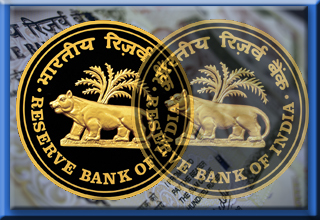RBI advises banks to adhere to NEFT guidelines
Updated: Jan 23, 2014 10:50:41am

National Electronic Funds Transfer (NEFT) is a nation-wide payment system facilitating one-to-one funds transfer. Under this Scheme, individuals, firms and corporates can electronically transfer funds from any bank branch to any individual, firm or corporate having an account with any other bank branch in the country participating in the Scheme.
“…in recent times, we have been receiving customer complaints on many of these issues. Further, various surveys conducted by RBI and incognito visits to the bank branches at different places revealed that many of bank branches do not adhere to the above guidelines.
“It was also observed that, in many cases the officers/staff dealing with the NEFT desk at different branches were not aware of many of the above features of NEFT and customers were not guided properly,” RBI said in a notification yesterday.
The RBI also noted that many banks officials were unaware of the actual charges for NEFT and in the absence of a display board indicating NEFT charges, customers wanting to remit funds were clueless.
“It was also observed that few large banks were diverting the walk-in customers / non-account holders / non-home branch customers to customer service points/agents for undertaking such transactions where the customers were being levied charges far higher than those mandated for NEFT transactions,” RBI added.
Such non-adherence to instructions, including those on transaction charges, issued by the RBI under the Payment and Settlement Systems Act, 2007, will be viewed seriously as it brings disrepute to the NEFT system, it said.
Instructions issued by the Reserve Bank should be adhered to by direct as well as sub-member banks in the NEFT, in both letter and spirit, it reiterated.
In this context, banks have been advised to: educate all staff about NEFT process, procedures, customer charges on a regular basis; make NEFT application forms with instructions available at all branches; ensure that the charges levied on customers for inter-bank NEFT transactions at both branch locations and CSP/BC/agent locations are at par; ensure that positive confirmation of credit to beneficiary account is invariably sent for all inward transactions received by them.
In case of delayed credits or delayed returns, the penal interest as applicable should be paid suo-moto to the customer without necessitating a request for the same by the customer.
Banks have also been advised to inform RBI about data pertaining to NEFT transactions by walk-in customers in a prescribed format on a quarterly basis, starting 31st March 2014.
The National Electronic Fund Transfer (NEFT) System, operational since November 2005 has seen an exponential growth in terms of volumes handled by the system, with a vast number of customers (individuals, corporates and Governments) using NEFT to meet their funds transfer requirements.
Over a period of time, the Reserve Bank of India has introduced many efficiency enhancement features and customer service requirements in the system so as to meet the expectations of the growing number of users of NEFT.
Some of the measures include the facilitation of walk-in customers to initiate NEFT transactions to any bank account; providing positive confirmation through SMS or e-mail to the remitting customer after the funds have been credited to the account of the beneficiary; payment of penal interest by banks for delays in credit to beneficiary’s account or return of uncredited funds to the remitter; furnishing appropriate details in pass book / account statement for credits sent / received by the customers through NEFT; rationalisation of charges levied to customers for NEFT transactions and indicating the maximum that can be recovered by banks from their customers. (KNN/ES)











